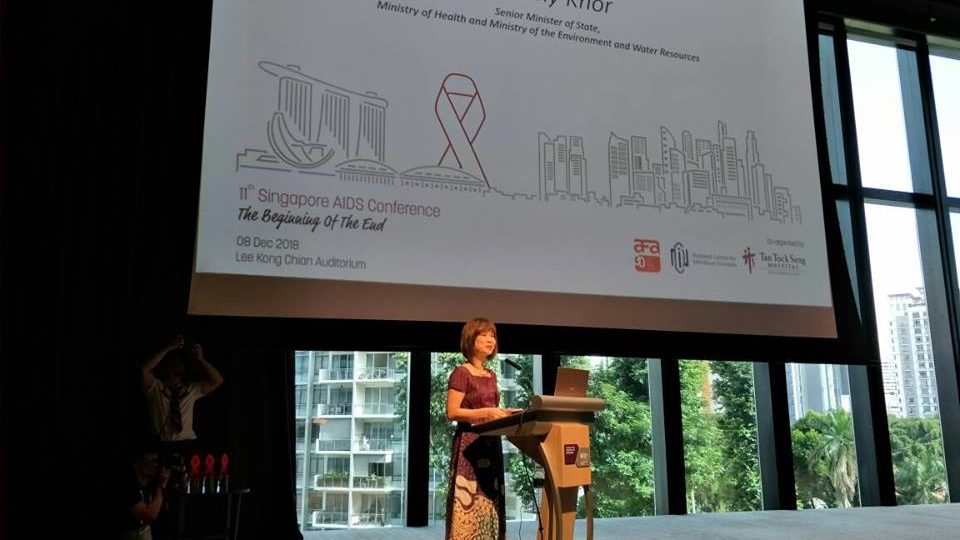“Sarah” was newly diagnosed with human immunodeficiency virus (HIV) and her employer contacted local authorities to ask if she could be terminated as they feared “Sarah” got the infection at work or could spread it to other co-workers.
However, the Singapore National Employers Federation (SNEF) stepped in to educate her employer that “Sarah” could not transmit HIV through casual contact, and people living with HIV can continue to be productive workers.
As such, “Sarah” was not fired and her employer now knows how to manage and support workers living with HIV.
The example was brought up by Senior Minister of State for Health Amy Khor at the Singapore AIDS Conference on Saturday (Dec 8) to highlight how SNEF’s engagement with employers are helping to fight workplace stigma that still exists against people living with HIV.
The measure is one of many measures that the government has launched to align Singapore with the United Nations’ UNAIDS goal to end the AIDS epidemic by 2030, said Khor in her speech at the conference’s opening ceremony.
As a result, Khor said more people living with HIV know their status, are getting treatment and are achieving viral suppression, which means that the virus cannot be detected in their blood and transmitted.
Data from 2013 to 2015 showed that the number of HIV people in Singapore who have been diagnosed rose from 69 per cent to 72 per cent, according to a report by Action for AIDS president Professor Roy Chan.
In that same date range, the percentage of diagnosed individuals who got treatment rose from 77 per cent to 89 per cent, and the percentage of treated individuals who achieved viral suppression rose from 82 per cent to 94 per cent.
“Even though the numbers are encouraging, we can and must do more to help people living with HIV,” said Khor.
As such, various members of the community came together to launch a community blueprint to end HIV in Singapore by 2030.
The blueprint aims to tackle HIV infections among several communities including heterosexuals with multiple sex partners, sex workers, transgender folk and travellers.
The conference, in its 11th run this year, gathered healthcare providers, public health experts and community partners to discuss latest strategies in HIV-related research and engagement.
Throughout the year, Action for AIDS will feature 30 stories to celebrate its 30th anniversary as well as end HIV transmission and AIDS in Singapore by 2030.

More information on the campaign to end HIV in Singapore by 2030 can be viewed on Action for AIDS’ website.




